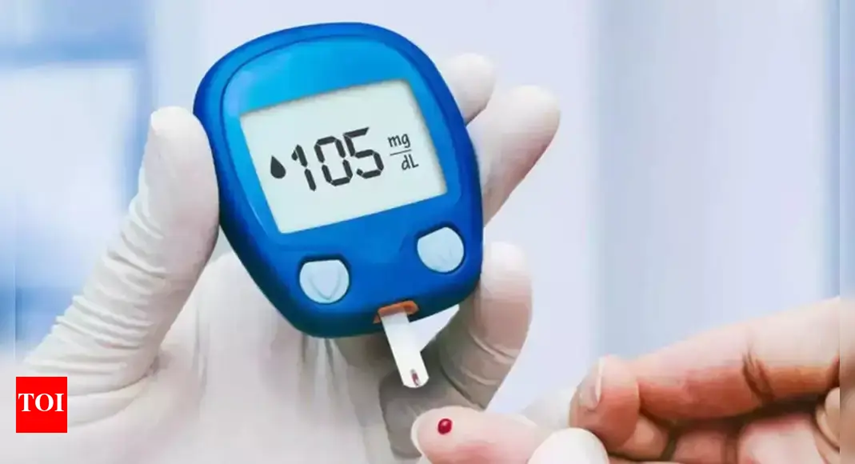
Jonathan D. Grinstein, PhD, the North American Editor of Inside Precision Medicine, hosts a new series called Behind the Breakthroughs that features the people shaping the future of medicine. With each episode, Jonathan gives listeners access to their motivational tales and visions for this emerging, game-changing field.
Progress in cancer diagnostics has been slow. While there has been progress in cancer screening, including new tests like Cologuard for colorectal cancer, improved mammography, and HPV testing for cervical cancer, the only new cancer added to screening since the start of my career is lung cancer. Despite these advancements, only one in six cancers in the United States is detected through screening, underscoring the need for significant improvement. This is why the current work to revolutionize and expand screening holds such transformative potential.
After a decades-long career as a physician-scientist, Tomasz (Tom) Beer, MD, let go of the majority of his practice at Oregon Health & Science University (OHSU) two years ago and joined Exact Sciences, the developer of Cologuard, to move the needle on cancer screening by developing blood-based multicancer early detection (MCED) tests. In this episode of Behind the Breakthroughs, Beer explains the ins and outs of developing MCED tests that can be used to screen people from all walks of life for cancer.
This interview has been edited for length and clarity.
IPM: Toward the beginning of your career, what was the definition of early detection? How has this changed the methodology, and how does it affect your patient interactions and prognoses?
Beer: Cancer screening has changed a bit since the beginning of my career, but progress has been much slower than we would like to see. We’ve refined our breast cancer screening and seen advances in technologies involved in cervical cancer screening, but we’re not doing things that differently today than we were when I was getting started.
Some progress has been made, but despite all that progress, today, we have guideline-recommended screening tests that cover about a third of incident cancers and cancer deaths, leaving two-thirds of cancer deaths and cancer diagnoses due to cancers that we don’t even screen for. Even though we have screening tests for about a third of cancers, we only diagnose about one in six cancers through screening in the United States because not everyone who is eligible for screening has access to or takes advantage of screening. So, we have a long way to go, and that is really the principal rationale for pursuing MCED.
IPM: Can you explain what goes into the development of multi-cancer early detection tests and how looking for multiple types of biomarkers in the blood plays a role?
Beer: We’re looking for different things and then putting them together into a single result. The latest version of our test is looking at protein biomarkers and DNA biomarkers. And the specific type of DNA biomarker is methylated DNA—a process that silences genes and keeps them from being active and expressed, and it’s a common process in cancer.
We’ve examined this approach in a large case-control study where we collected blood samples from healthy individuals and from individuals with known cancer. That’s the first step in really building such an assay and testing how it performs. We recently presented those data and reported that our test was capable of detecting 50.9% of the cancers overall, 54.8% of those cancers for which we don’t currently have screening tests, and 63.7% of the six most aggressive cancers, those cancers that today have the shortest five-year survival.
We need to evaluate those in a prospective study where we’re enrolling individuals who are healthy and seeking screening, but the results are very encouraging for us to move forward with the next step of our assay development.
IPM: How has your role at Exact Sciences influenced your work as a clinician and shaped the way you interact with patients, potentially adding a new dimension to your career?
Beer: My whole career has been in an academic setting where patient care was complimented by research to advance patient care and improve patient outcomes. My job at Exact Sciences is an expression of what I’ve always been passionate about. When this opportunity came along, and I thought about where I might have the biggest impact on cancer and on human health, I felt that working on an MCED test really dwarfed other opportunities that I had previously. I was working very hard to advance the care of prostate cancer patients, which I love and I’m very passionate about, but here’s an opportunity to impact outcomes for folks affected by most types of cancer. And that was just too compelling to pass up. It’s similar in mission, just a different setting.
IPM: How do you foresee artificial intelligence (AI) influencing the field of pathology, particularly regarding its integration into Exact Sciences’ testing methodologies beyond imaging-based pathological analysis?
Beer: For our MCED test, we are using machine learning to optimize our diagnostic algorithm, but it isn’t quite AI as you might be imagining it. One of the things that we found is that sometimes you can do a better job by selecting the most informative biomarkers and developing a test around a robust algorithm using a defined number of biomarkers and not millions and millions of data points. Those kinds of strategies can have promise.
However, they also have some real challenges and reproducibility in how you might evolve them over time, as well as challenges with things like overfitting, where you might get a result that looks very promising in a training set of samples and then when you roll it out in the real world, it does not quite deliver the results that you were anticipating when you use just raw AI to analyze millions of data points so machine learning.
So, the current generation of Exact Sciences’ MCED test is not using AI in the classic sense that I think people imagine. There’s a lot to do ahead and I think the role of AI is going to continue to evolve in our field and we’ll continue to look at that. When it can best serve patients and improve the performance of our tests, we’ll be ready to take advantage of that.
IPM: How is Exact Sciences ensuring that its tests are developed using real-world data to be accessible and effective across diverse demographics, including variations in race, age, and ethnicity?
Beer: We want to develop tests with everyone and for everyone. That starts with recruiting a very diverse and representative group of individuals into your initial studies, the case-control studies where the tests are designed and first field-tested so that you’re not just designing in a non-representative group and hoping that it’ll work in everyone later. You start from the ground up with samples from a fully representative group. That’s exactly what we’ve done.
We have deliberate goals to continue accruing a broad, representative, and diverse group of participants into our studies going forward. As we develop confirmatory evidence, that will also be broadly applicable, but it goes beyond that. Those are the product development approaches that we can do, but there are practical and important aspects beyond that. For a test to be broadly available, it needs to gain FDA approval. It needs to be broadly reimbursed by Medicare and by commercial insurers.
It also needs to be made available with patient support in a culturally sensitive and informed manner in many languages. We do that with our stool-based test, Cologuard, where, for example, patient support is available in 240 languages. And there are many other examples of how we work hard to do that now with our currently available tests. Cologuard, for example, is available to 96% of Americans without copay through their insurance plans. So, I’m dreaming of that availability for the MCED test. We have a long way ahead, starting with the engagement of diverse populations. But it doesn’t stop there. It needs to continue overcoming all the various barriers to access that we know exist.








![Best Weight Loss Supplements [2022-23] New Reports!](https://technologytangle.com/wp-content/uploads/2022/12/p1-1170962-1670840878.png)




